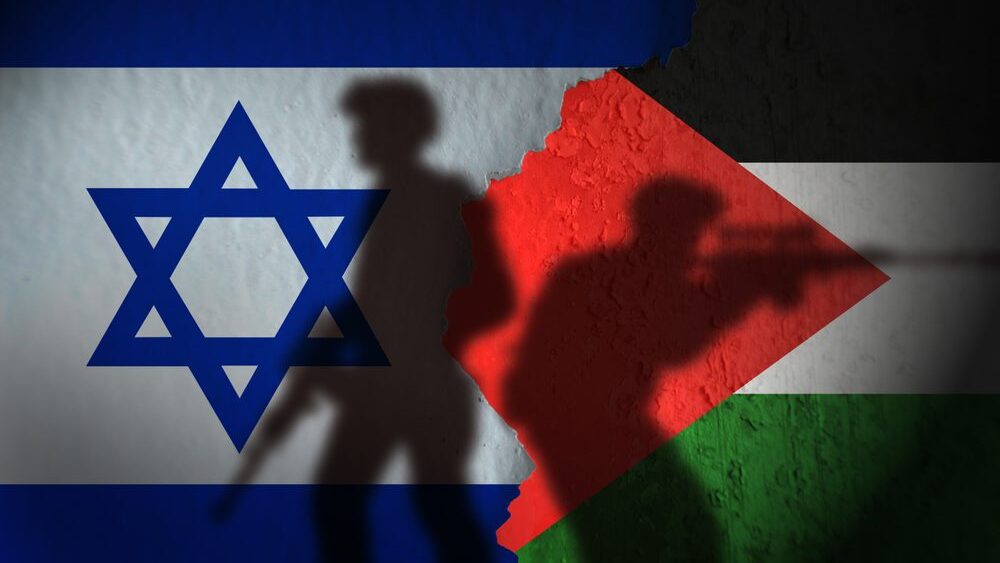
Almost 50 foreign ministers from countries in Europe and the Middle East met on the sidelines of the UN General Assembly on Monday, September 18th, to unveil a new initiative aimed at reviving the Israeli-Palestinian peace process.
Through this, it hopes to achieve a ‘Two-State Solution,’ with a “sovereign,” “independent,” and “contiguous” Palestinian state based on the June 4th, 1967 lines.
Thirty years after the signing of the historic Oslo Accords, any such peace on that basis, however, remains as elusive as ever.
A Netanyahu-led nationalist government in Jerusalem staunchly opposed to the notion of a Palestinian state, a volatile situation in the West Bank (the lion’s share of the Palestinian territories), as well as operations by the Islamist movement Hamas outside its usual remit in Gaza do much to militate against the prospect.
“The Israeli-Palestinian conflict is deteriorating dangerously,” the EU’s chief diplomat Josep Borrell said upon the launch of the scheme, which the EU is co-leading alongside Saudi Arabia, the Arab League, Jordan, and Egypt.
Today, we launched the Peace Day Effort, with @FaisalbinFarhan @MfaEgypt @AymanHsafadi @arableague_gs
— Josep Borrell Fontelles (@JosepBorrellF) September 18, 2023
The Israeli-Palestinian conflict is deteriorating dangerously. With our initiative we want to support the path towards a comprehensive peace between Israel and Palestine. pic.twitter.com/AVYPq5GS4j
“With our initiative, we want to support the path towards a comprehensive peace between Israel and Palestine,” Borrell said, who in the subsequent days held two individual meetings with Palestinian Prime Minister Mohammad Shtayyeh and Israeli Foreign Minister Eli Cohen.
Through the EU-led initiative, the bloc is seemingly trying to match China’s recent diplomatic success in the region. Casting itself in the role of acting peace broker there, last March it led arch-rivals Iran and Saudi Arabia to the negotiating table, which culminated in their burying of the hatchet.
All participants in the so-called “Peace Day Effort” have agreed to produce a “Peace Supporting Package” in the coming months that grants benefits to Israelis and Palestinians, on the proviso they have reached a peace agreement.
Participants agreed to form three working groups that will be tasked with producing the components of the package. One working group will outline potential post-peace regional, political, and security cooperation mechanisms. A second working group will develop proposals for economic cooperation in areas such as trade, investment, innovation, transportation, natural resources, and the environment. A third working group will develop proposals for cooperation in humanitarian, intercultural, and human security issues.
Over 40 countries & delegations joined our meeting today, where we agreed to start a process to develop a “peace support package”
— Josep Borrell Fontelles (@JosepBorrellF) September 18, 2023
To this end, are launching 3 working groups that will kick off work next month: political and security, economic & environment and human dimension pic.twitter.com/rCIf8LdZdJ
Participating countries also agreed to assess the initiative’s progress every three months before presenting the finalized Peace Supporting Package by September 2024. While neither Israeli nor Palestinian officials had been invited to the event, the initiative’s backers would be in continuous talks with both parties for feedback on what they would like to see included in the package.
As reported by The Times of Israel, in the eyes of Egypt’s Foreign Minister Sameh Shoukry and Jordanian Foreign Minister Ayman Safadi, any hope for success would be contingent on Israel’s actions.
Israel, they said, should cease its “unilateral actions” beyond the Green Line (the demarcation line set out in the 1949 Armistice Agreements between Israel and Egypt, Jordan, Lebanon and Syria after the 1948 Arab–Israeli War), such as settlement construction, demolition of Palestinian homes, evictions of Palestinian families, and violations of the status quo at Jerusalem’s holy sites.
EU Special Representative for the Middle East Peace Process and main architect of the initiative, Sven Koopmans, told Euractiv in a Sunday, September 24th interview that the “only one solution is that there will be an Israel and the Palestinian state living side by side.”
“A big part of what happens on that day is not within our control, because of the Israeli-Palestinian peace agreement they need to develop for themselves—we cannot do that for them,” Koopmans said.
“But then there are many other things that are within our control, because on that day—whenever that might be in the future—all these partners—the EU, the Arabs, Americans and the Chinese—all of us, will contribute,” he said.
“For the EU side, we will provide an unprecedented package of political, economic and security support,” he added, which would also include incentives for the Syrian and Lebanese governments to make peace with Israel.
Whether the EU’s and its regional partners’ efforts will pay off remains to be seen.
Failure to bring about negotiations while keeping viable the Two-State Solution, the bloc states, however, means “the prospects for peace will further diminish, and conflict will characterize the future of the region as much as it has marked its past.”
